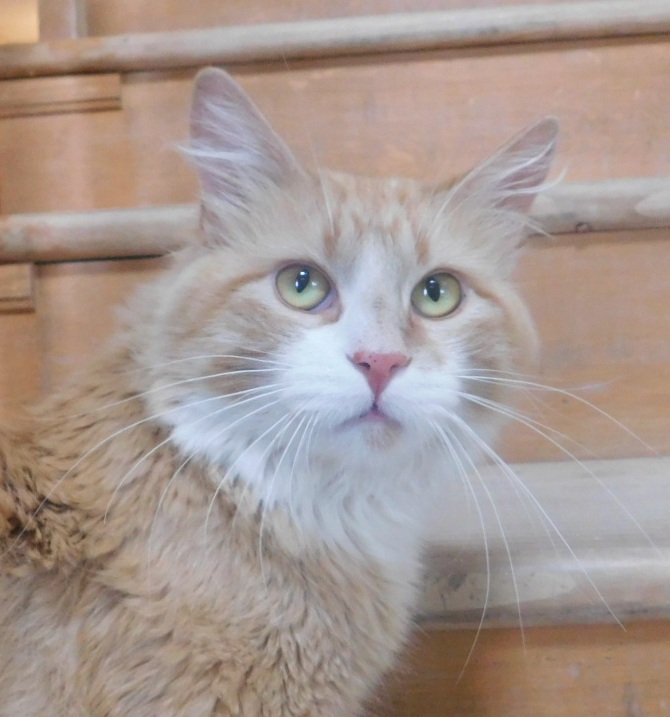
31 Aug Second Chance: Humane Language
I was recently at a local farmers market for a Second Chance adoption event when someone pointed to me and asked “How much are you selling that cat for?” When I hear myself being questioned as though I were a vegetable or loaf of bread at the Farmers Market, I must admit it is a bit offensive. If I could speak I would have said, “I am not for sale…”
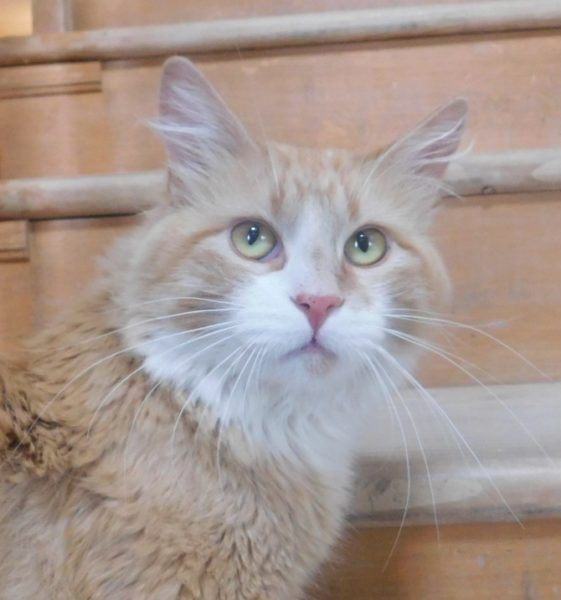
Julius
Now, I am sure the person with the question did not mean to offend and some might say we are dealing simply with semantics – adopting vs buying – but I say we are still dealing with the need for a cultural revolution. Here is why I think that: Until people start relating to pets as “part of the family” there will always be a need for animal shelters and millions of pets euthanized every year.
However, if pets are embraced as part of the family, they will be responsibly cared for – vaccinated, provided proper identification, spayed/neutered, socialized, good nutrition, etc. –and protected from neglect, abuse and abandonment. Words are simply words, but depending on how they are used, they hold the power to hurt or to create positive social change.
In the December 2000 publication of Animal Sheltering magazine the topic of language and whether words helps us progress toward a more humane world was discussed. The article referenced the feminist and civil rights movements in which semantics changed from “ladies” to “women” and “coloreds” to “African-Americans,” thus reflecting a more tolerant and just culture where people are seen as individuals with rights.
Eliot Katz, president of In the Defense of Animals, says change is crucial to elevating the public’s perception of animals:
“I know the importance of language, and how action follows language,” says Katz. “The change in this terminology [indicates] a change in the paradigm—to think of animals differently and think of one’s relationship to them differently. It’s terribly important because it’s a major step in ending a great deal of animal pain and suffering.”
The shift away from seeing an animal as an owned thing, says Katz, is similar to the shift that gradually gave women and African-Americans status as citizens and not property to be used according to the arbitrary will of a husband or “master.”
So how has the power of the word helped to drive the animal humane movement forward and change the way people relate to animals?
Consider changes in terms like “dog-catcher” to “animal care officer”; from referring to pets like me as “homeless” rather than “unwanted”; and for those who have pets in their lives as “pet parents or guardians,” rather than “pet owners.”
Even common words used regularly in our communities of “humane” and “adopt” were once used singularly as human references and not in regard to animals. This shift was what led to the creation of the animal welfare and rescue field and the development of laws that protect animals from abuse. Perhaps if we keep moving forward, someday the word “euthanize” will no longer exist in our language…
My name is Julius, I am a two-year-young, wise, loving, playful, sun-loving feline. I have an occasional limp from my previous life before I was rescued and discovered the brighter side of humanity. I look forward to meeting my new family sometime soon…
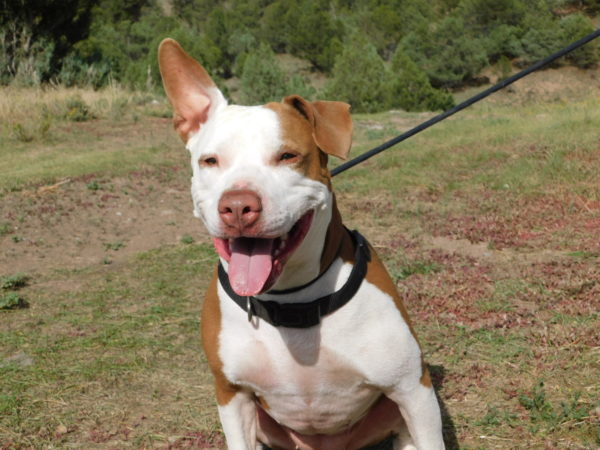
Dixie
And the Dog of the Week here at Second Chance is Dixie, a beautiful brown-and-white pit bull mix. Dixie is about 4 1/2 years old and LOVES people, as well as rope toys and playing fetch. She is working on playing less rough with other dogs and improving her leash manners. Her love of people makes her very responsive to training.
Editor’s note: It’s no secret. The Telluride region is dog heaven. Well, pet heaven. Unless you are one of our furry friends who gets caught in the maw of neglect and abuse. Then heaven is on hold until Second Chance Humane Society comes to the rescue. Second Chance is the region’s nonprofit dedicated to saving animals’ lives and promoting responsible pet parenting and human-animal bond. In her weekly blog, executive director Kelly Goodin profiles at least one, generally two of the many animals now living at the no-kill shelter, Angel Ridge Shelter, a dog and a cat, hoping to find them loving permanent homes. The column is sponsored by Ted Hoff of Cottonwood Ranch & Kennel, who from time to time exercises his skills as a dog whisperer, partnering with Kelly and her staff to help train a particularly challenging animal.
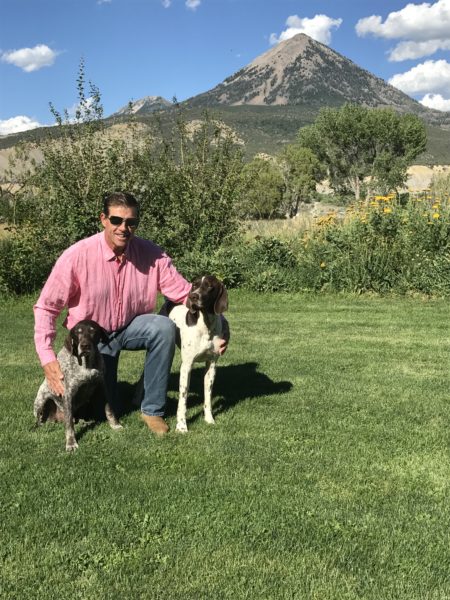
Ted Hoff with Cabella & Wilbur
By the by, there is no better place to park your pup or get your pup (or adult dog) trained than Cottonwood whenever you head out of town (for locals) or are heading to town and staying somewhere that does not allow pets. Consider joining Ted’s Very Important Dog (VID) Club for added benies. (Details on Ted’s website.)
Second Chance Humane Society Animal Resource Center and Thrift Shop are both located in Ridgway, but service San Miguel, Ouray & Montrose Counties. Call the SCHS Helpline at 626-2273 to report a lost pet, learn about adopting a homeless pet, or about the SCHS Spay/Neuter, Volunteer, Feral Cat, or other Programs. View the shelter pets and services online: www.adoptmountainpets.org
Vetting the Vet: Dr. Michelle Dally, DVM, J.D. is Medical Director of Second Chance Humane Society. She also has a private practice, Dally Veterinary Medicine, 333 S. Elizabeth Street, Ridgway, Colorado. Her service area is San Miguel Mesas, Placerville, Ridgway, Ouray, and Montrose. For more on Dr. Dally, go here.
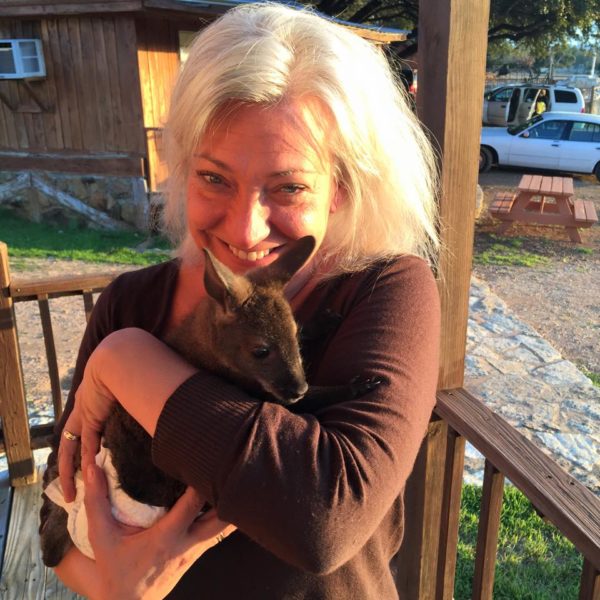
Michelle & Wallowby


Sorry, the comment form is closed at this time.